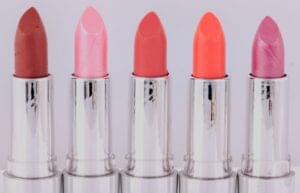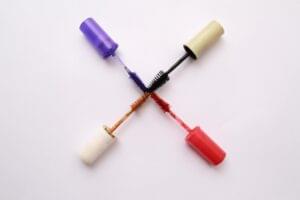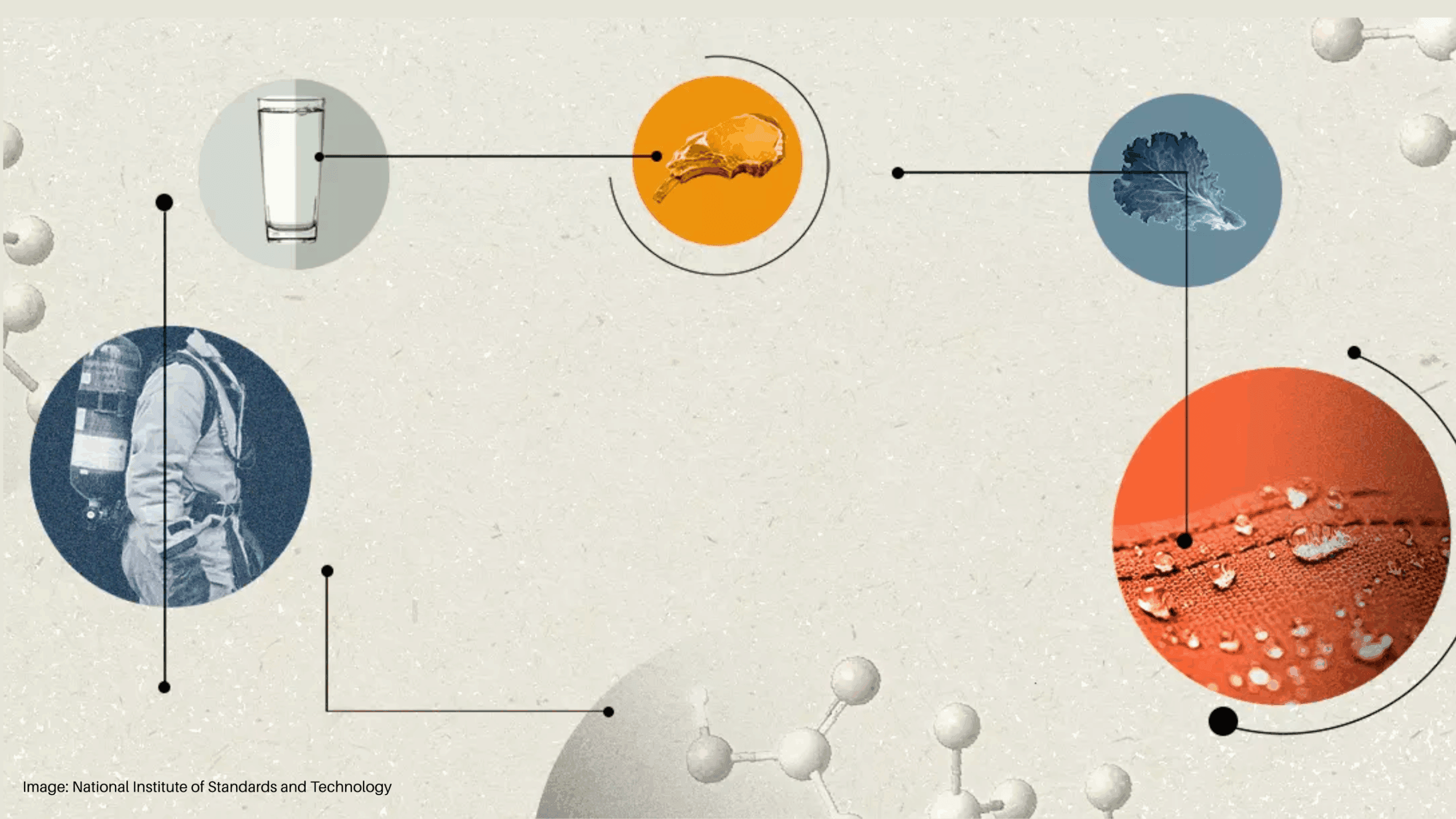The Cosmetic, Toiletry and Perfumery Association (CTPA) has published a Charter on 9 June, supported by the British Retail Consortium (BRC), to help customers get back to browsing beauty counters safely as UK department and retail stores prepare to re-open from 15 June.
The trade association representing the UK cosmetics industry, has worked with manufacturers, distributors, retailers and the industry’s scientific experts, with support from the BRC, to tailor Government guidance and develop the new Charter. Titled Protecting Us All at the Beauty Counter, it’s designed to ensure that customers feel confident that every precaution is being taken to keep them and staff safe when choosing products in store during the COVID-19 health crisis.
The Charter covers a range of important aspects for customers to be aware of at the present time; includingn the availability of testers for self-use, enhanced hygiene measures, regular and thorough disinfecting of surfaces, restricted access to open products, contactless payment and the suspension of staff demonstrations and make-overs.
Alongside the Charter, the Association is also launching new guidelines for the cosmetics industry ahead of retail stores re-opening: ‘COVID-19 Guidance on In-Store Testers and Cosmetic Counters, Beauty – Safe in Store’. These guidelines are aimed at both retailers and companies, are based on Government advice and with industry input. They address the future use of testers and how companies can prepare for customers returning to store, particularly stores with beauty counter staff who frequently serve customers face-to-face.
Dr Emma Meredith, Director-General of the CTPA, commented:
“The re-opening of retail stores and beauty counters after months of closure is an exciting and encouraging step for customers and for the cosmetics and personal care industry. As an industry we take our responsibility for staff and customer safety seriously. The new BRC-backed CTPA Customer Charter has been created to help boost customer and returning staff confidence that every precaution, based on sound scientific evidence, is being taken and applied, to ensure their safety in store as we continue to navigate these unparalleled times.”
Helen Dickinson OBE, Chief Executive of the British Retail Consortium, also added:
“We fully support CTPA’s new Customer Charter. This is another example of how the cosmetics industry has continued to transform in response to the pandemic and changing consumer shopping habits. Retailers across all sectors have faced unique challenges since the outbreak of COVID-19 in the UK and consumers are more cautious about health and safety and spending than ever. We hope that the public feel reassured when buying their favourite beauty and cosmetic products in-store thanks to this important update.”
Read on for further details on the Charter and the full guidelines:
CTPA CHARTER: PROTECTING US ALL AT THE BEAUTY COUNTER – OUR PLEDGE TO CUSTOMERS
The Cosmetic, Toiletry and Perfumery Association (CTPA), the trade association representing the UK cosmetics industry, is working closely with manufacturers, distributors, retailers and beauty professionals to ensure safe practice in store and at beauty counters, so you can be confident that every precaution is being taken, based on sound scientific advice. The British Retail Consortium (BRC) is also supporting this Charter.
The CTPA Pledge to Customers – Safety In-Store
- Whilst open products, such as make-up, may be on display behind Perspex screens to showcase the product, testers will not be open for self-use.
- Some testers may be available when this is considered safe, for example, fragrances or products in sealed pump containers that can be easily sanitised. These testers will be provided in a controlled manner and under strict hygiene measures for the protection of you and those serving you.
- Staff will not be performing demonstrations and make-overs on customers at the current time. Each store will consider the best method of helping you choose the colours, fragrances, and skincare to meet your needs, for example, shade charts or even smart new virtual technologies. These will help you to get a sense of how the products work, look and feel without direct contact. Where appropriate, you may be offered disposable applicators or single-use samples for trying small amounts of product.
- Staff in stores and at beauty counters will offer their expertise whilst respecting social distancing rules and using enhanced hygiene measures, to ensure their own and customer safety at all times.
- Each store will ensure that all surfaces are regularly cleaned and sanitised.
- You may find that the flow around the store changes to minimise the number of people in each location within the store at any given point, according to the space available. This will vary between stores and will be clearly signposted to ensure the safety of staff and customers.
- We are all encouraged to use contactless and card payments wherever possible. You may find that the till is behind a screen and that your receipt is placed in the bag with your products or sent to you by email.
This pledge will be reviewed regularly and will evolve as the situation demands, based on the latest science and advice from the UK and devolved Governments.

CTPA COVID-19 GUIDANCE ON IN-STORE TESTERS AND COSMETIC COUNTERS
Beauty – Safe in Store 8 June 2020
During the current COVID‐19 health emergency, stores that have remained open have removed make‐up and other cosmetic testers from their shelves. As the UK Government considers an easement of restrictions in the coming weeks and months, the reopening of retailers, concessions and cosmetics counters can be anticipated.
These guidelines promote beauty being safe in store for the customer and staff by addressing the use of testers and how companies can prepare for retailers in general and stores with counter staff to re‐open.
Legal Background
Cosmetic legislation equally applies to testers of cosmetic products. Manufacturers would be wise to design their testers so that product contamination is avoided under multi‐use retail conditions. Sprays and ‘single‐dose’ containers are often used for this purpose. For reasons of commercial security, it is customary to mark the container of a tester with ‘tester ‐ not for sale’ (or similar wording) in indelible, easily legible, and visible lettering.
Customer Charter
CTPA has created a Customer Charter to reassure customers of the safety considerations and processes in place when shopping for beauty safely in‐store. The Charter is available at www.thefactsabout.co.uk/covid19advice.
Acknowledgements
The Cosmetic, Toiletry and Perfumery Association (CTPA) wishes to thank the members of the CTPA Testers and Counter Staff Guidelines Working Group for their time, advice and support in the preparation of this document.
The CTPA would also like to thank Caroline Rainsford, Head of Scientific and Environmental Services, and Christine Lawson, Sustainability & Technical Affairs Manager, at CTPA, for the compilation of this document and their input.
The guidelines will be reviewed and updated as Government advice changes. However, CTPA welcomes comments, questions or suggestions for improvements to this guideline. These should be addressed to Emma Meredith, Director‐General, at the CTPA Secretariat or sent via email to: info@ctpa.org.uk.
Copyright Information
©Copyright 2020 The Cosmetic Toiletry and Perfumery Association (CTPA). This document is available for free download, electronic storage and printing by companies in the normal course of their business. Copyright rests with the CTPA.
The Cosmetic Toiletry and Perfumery Association (CTPA) is the trade association for the UK cosmetic and personal care industry. The Association’s role is to advise manufacturers, distributors and suppliers about the strict legal framework for cosmetics, to represent industry views to UK government, and external stakeholders and help promote information to the media on issues relating to the safety of cosmetic products. The CTPA is the voice of the British cosmetics industry and provides the most up‐to‐date interpretation of, and guidance on, regulatory matters affecting cosmetic products in the UK and Europe.
The Cosmetic Toiletry & Perfumery Association (CTPA) Limited
Sackville House, 40 Piccadilly, London W1J 0DR
Tel: 020 7491 8891
E‐mail: info@ctpa.org.uk
W: www.ctpa.org.uk, www.thefactsabout.co.uk.

Transmission of COVID‐19
According to the World Health Organisation (WHO), COVID‐19 spreads primarily from person to person through small droplets from the nose or mouth, which are passed on when an infected person coughs, sneezes or speaks. People can catch COVID‐19 if they breathe in these droplets from a person infected with the virus. This is the basis of the advice to employ social distancing.
The infected droplets can land on objects and surfaces such as tables, doorknobs and handrails. People can become infected by touching these objects or surfaces, then touching their eyes, nose or mouth.
Fortunately, surfaces contaminated by the droplets containing COVID‐19 can easily be cleaned with common disinfectants that will kill the virus. According to the WHO, studies have shown that the COVID‐19 virus can survive for up to 72 hours on plastic and stainless steel, less than four hours on copper and less than 24 hours on cardboard.
To minimise the risk of infection, wash your hands frequently with soap and water. If handwashing facilities are not available nearby, clean hands regularly with an alcohol‐based hand sanitiser. Avoid touching your eyes, mouth or nose. Wipe surfaces down regularly with an appropriate sanitiser or cleaner.
The German Federal Institute for Risk Assessment (BfR) considers that transmission of COVID‐19 through cosmetic products is unlikely. However, it is important not to share cosmetic products.
General Considerations for Testers
Terminology
Self-select tester
A tester available for customers to try in a self-select environment, such as a gondola display of cosmetics, including make-up, skincare or fragrance, in a customer retail store.
Controlled tester
A tester administered in a controlled environment by a consultant or other member of staff; for example, single-shot samples or product samples provided via a disposable applicator by a consultant or other member of store staff.
Display product
A product that is available to view, but access is controlled, for example, through screened display sections. Display products are not available to purchase.
The Responsible Person manufacturing a cosmetic product must ensure GMP (Good Manufacturing Practice) is still complied with throughout manufacture, and for testers available in‐store for customer use, to ensure customer safety. This should form part of the defined procedures made available in the legally required Product Information File.
Under GMP and quality controls, possible product contamination should have been addressed and therefore there would be no concern regarding products on shelf. However, once opened the products will be exposed to possible contacts and contamination. Under any circumstance, this carries a risk of disease transmission, and the COVID‐19 situation, while alarming, does not change this fact.
In addition to the actual product, contact of people with the packaging, where viable microorganisms might also survive, should be taken into account by the manufacturer.
While the use of in‐store testers is a commercial practice and is not covered under the scope of the legislation, best practice and risk minimising strategies should be put in place.
A procedure should be in place to review or replace testers giving consideration to the PAO (Period After Opening) or Best Before Date, and estimated exposure to air, environment and people. The use of disposable applicators will protect against further microbial transmission.
Finally, it is important to adhere to any differing devolved Government rules in England, Scotland, Wales and Northern Ireland, or if counters are located in sites with specific measures in place, such as airports. Differing advice may be in operation on matters including the use of face coverings.
General Hygiene Considerations
It is important to understand the customer mindset in relation to the availability of testers and to provide an environment which makes the customer feel safe and comfortable.

Considerations for the Brand
- Any testers which were opened prior to the COVID‐19 situation should be disposed of, unless a risk assessment has been undertaken which deems the tester to be low risk. For example, fragrances or products in sealed pump containers that can be easily sanitised. If a PAO or Best Before Date is present on the product, it must be adhered to.
- Consultant and staff safety must be ensured at all times in all aspects of the work including work rotas.
- Companies should consider staff uniforms or other work clothes. In particular, aspects such as washability, washing instructions and frequency, whether staff will travel to work in their uniforms, and changing facilities available at work if this is not the case.
- Companies may wish to consider the use of face coverings and gloves, either disposable or cotton. In this case, consideration should be given to possible allergies, environmental impact and procedures for safe removal and disposal where applicable.
- Good hand hygiene must be maintained at all times through regular hand washing and/or the use of alcoholic hand sanitiser. If staff wear gloves, the gloves must be changed between each customer and product contact, removed without the contaminated part touching the skin, and disposed of appropriately.
- Consultants and staff members should maintain the appropriate distance, according to Government instructions, from customers whenever possible.
- All counter and display surfaces must be disinfected thoroughly and regularly.
Considerations for the Retailer
- Thorough hygiene and sanitisation processes should be in place.
- Distance markings should be available, to help all staff and visitors maintain the correct social distance.
- The store layout should be carefully considered, to avoid over‐exposure of certain areas of the store to high customer traffic.
Phase One
The initial phase when retail stores reopen:
- Self‐select testers should not be available during this phase.
- The use of controlled testers during this phase is unlikely to be appropriate unless specific protocols have been fully considered and agreed.
- Display products, which are not accessible to the public, may be on view during this phase, for example, behind a Perspex screen.
- Novel ways to convey the product ethos and characteristics to the customer could be used; for example, digital images and explainers, or touch‐free methods to allow the customer to smell a fragrance.
- It is very important that phase one is ‘touch free’, with no physical contact between customers and staff.
- Training should be provided to store staff on how to engage with customers, reassuring them on the safety processes in place.
Phase Two
When the reintroduction of controlled testers is unlikely to risk COVID‐19 transmission:
- Self‐select testers should not be available during this phase. Self‐select testers are handled by many different people and there is a risk of contamination of the product surface and subsequent transfer of COVID‐19
- It is important to discourage customers from opening or testing products at self‐select counters. For example, through the use of communication, tamper‐proof seals or intervention by store staff.
- Controlled testers may be reintroduced if the risk of contamination and transmission of COVID‐19 is negligible.
- Store staff should be fully trained on all procedures relating to controlled testers, especially hygiene procedures.
- Controlled testers should not be handled by the customers.
- Controlled testers should be handled by trained staff in a way that minimises surface contamination.
- Wherever possible, controlled testers should still operate under a ‘touch‐free’ system. Ideally, companies may show the product to the customer using a white tile or similar item. However, if the customer wishes to apply the tester to their skin, this must take place via a disposable applicator controlled by counter staff, or a single‐use product.
- Controlled testers in the form of single‐use products can be distributed to customers upon request. Hand sanitiser or hand washing must be employed after each customer interaction.
Companies should also consider the environmental impact of the materials that are selected for this purpose.
Example controlled tester procedures for different product formats
Products should be decanted and demonstrated as below, placed on the counter for the customer to use:
Creams or Liquids
Place on a sanitised tile or decant using a disposable spatula or pump into a disposable pot.
Powders
Take a swipe of the powder using a disposable sponge applicator and place applicator onto a sanitised tile or into a disposable pot.
Lipsticks
Take a small slice from the top of lipstick using a disposable spatula, and place onto a sanitised tile or into a disposable pot.
Fragrance
Spray onto fragrance blotter.
Mascara
Use a disposable applicator and place into a disposable pot.
Phase Three
When the reintroduction of self‐select testers is unlikely to risk COVID‐19 transmission:
- Self‐select testers should not be reintroduced until the circulation of COVID‐19 in the general population no longer poses a significant risk.
- The procedures outlined in phase two for controlled testers also represent good practice in normal circumstances and should still be followed.
Disclaimer
The Charter and guidance will be reviewed regularly and will evolve as the situation demands, based on the latest science and advice from the UK and devolved Governments. For more information go to COVID-19: Advice for Consumers and read more about the very strict safety rules that apply to cosmetic and personal care products in the UK and the EU at Your Safety Matters to Us.
For media enquiries please contact Alexandra Dewar at Teneo on 07824 901427 or ctpa@teneo.com on behalf of CTPA.
The British Beauty Council Disclaimers
These suggested guidelines reflect an industry that wants to return to work safely and have been created with experts in each industry field and are advisory only. They are also suggested in order to give the consumer confidence to buy our services and goods. The British Beauty Council will review and update these suggested guidelines regularly and accordingly based on government guidelines and a review of our partners specific guidelines.
These guidelines do not constitute legal requirement, have not been agreed with the UK Government and do not imply or incur any liability to the British Beauty Council. These guidelines are written with a view of protecting our partners, their staff and customers with their health & safety being the number one priority and are based on expert and public knowledge as of 09.06.20. Businesses should continue to check local government websites and guidelines for the most up to date recommendations.




